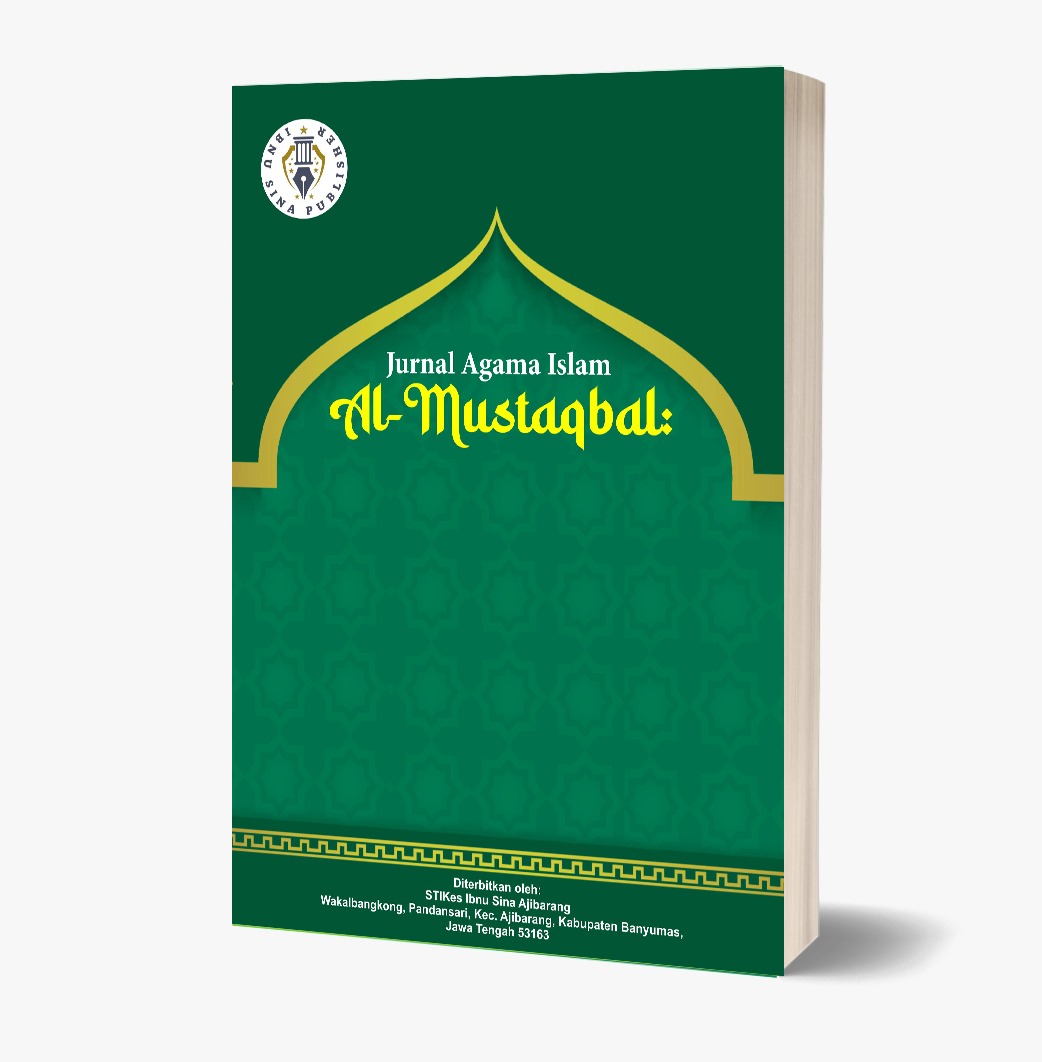Menafsirkan Ilmu sebagai Amanah : Studi Integratif Hadis dan Filsafat
DOI:
https://doi.org/10.59841/al-mustaqbal.v2i2.132Keywords:
Filosofis Hadith, Science, Scientific Ethics, TrustAbstract
This study emphasizes the importance of understanding science as a mandate that carries not only cognitive dimensions, but also deep moral and social responsibilities. Science should not be viewed merely as a collection of technical knowledge, but must be carried out with integrity and honesty for the benefit of the people. By integrating the perspective of the hadith of the Prophet Muhammad SAW and the philosophy of science approach, this study uses a hermeneutic qualitative methodology to explore normative and rational-ethical values in Islamic scientific ethics. The results of the study show that the scientific paradigm based on mandate combines spiritual and rational dimensions, thus forming a solid and relevant foundation for academic ethics in the context of Islamic higher education. These findings emphasize the importance of internalizing the values of responsibility, honesty, and social orientation in scientific activities. The main contribution of this study is the reformulation of the scientific ethics paradigm that is more holistic, sustainable, and in line with Islamic values.
References
Amiruddin, A. (2021). Amanah dalam perspektif Al-Quran (Studi komparatif tafsir Al-Misbah dan Al-Azhar). Jurnal Mudarrisuna: Media Kajian Pendidikan Agama Islam, 11(4), 833. https://doi.org/10.22373/jm.v11i4.4665
Basri, H. H., Heliwasnimar, H., & Ardimen, A. (2024). Etika dan moral dalam ilmu pengetahuan. Indonesian Research Journal on Education, 4(1), 343–351. https://doi.org/10.31004/irje.v4i1.494
Busthomi, F. (2024). Telaah filsafat ilmu dalam tanggung jawab seorang ilmuwan., 2(10), 3412–3426.
Dewi, A. V., Wibisono, M. Y., & Hernawan, W. (2022). Amanah dalam pandangan hadis: Studi tahkrij, syarah, dan tematik. Gunung Djati Conference Series, 8, 8.
Djou, R., Ola, S. P., & Pahmi, S. (2024). Peran filsafat ilmu tentang konsep teori kebenaran ilmiah. [Nama Jurnal Tidak Dicantumkan], 6(3), 262–270.
Fauzi, M. Y., Hermanto, A., Ismail, H., & Arsyad, M. (2022). Metode ijtihad dan dinamika persoalan di kalangan imam madzhab. At-Tahdzib: Jurnal Studi Islam dan Muamalah, 10(1), 67–79.
Felix, S., & Suban, B. (2024). Moralitas dan kewajiban: Pemikiran etis Emanuel Kant. Jurnal Sains Ekonomi dan Edukasi, 1(12), 1011–1019.
Ghulam Dzaljad, R., Firmantoro, V., Rahmawati, Y., Pranawati, R., Setiawati, T., Tiara, A., Mustika, S., Prasetya, H., Hariyati, F., Qusnul Khotimah, W., Dwi Fajri, M., Khohar, A., & Dwi Agustini, V. (2022). Etika komunikasi: Sebuah paradigma integratif. [Penerbit tidak dicantumkan].
Hermawan, I., & Ahmad, N. (2020). Konsep amanah dalam perspektif pendidikan Islam. Qalamuna: Jurnal Pendidikan, Sosial, dan Agama, 12(2), 141–152. https://doi.org/10.37680/qalamuna.v12i2.389
Jatri, I. S., Manik, F. E., Pratama, F. S., Syahidah, H. H., Limbangan, N. A. P., & Amrillah, R. (2023). Profesionalisme dan tanggung jawab seorang ilmuwan dalam perspektif Islam. Al-Mau’izhoh, 5(2), 486–496. https://doi.org/10.31949/am.v5i2.7582
Kamal, M. F., Arifiansyah, R., & Salman, M. (2024). Tanggung jawab ilmuan Muslim. [Nama Jurnal Tidak Dicantumkan], 3(4), 281–288.
Kartanegara, R. M. (2003). Integrasi ilmu. Refleksi, 5(3). https://doi.org/10.15408/ref.v5i3.25904
Ke-, P. A., Sulistyowati, D., & Ma, S. (2025). Relevansi pemikiran Ibnu Rusyd dalam menghadapi tantangan. [Nama Jurnal Tidak Dicantumkan], 9, 5236–5241.
Madung, O. G. (2016). Memperkenalkan pemikiran Jurgen Habermas (pp. 1–27). STFK Ledalero.
Nurhayati, H., & Langlang Handayani, N. W. (2020). Filsafat ilmu sebagai pengembangan nilai Pancasila dalam mengatasi krisis kebangsaan. Jurnal Basicedu, 5(5), 524–532. https://journal.uii.ac.id/ajie/article/view/971
Sari, M. (2020). Penelitian kepustakaan (Library research) dalam penelitian pendidikan IPA. 41–53.

















